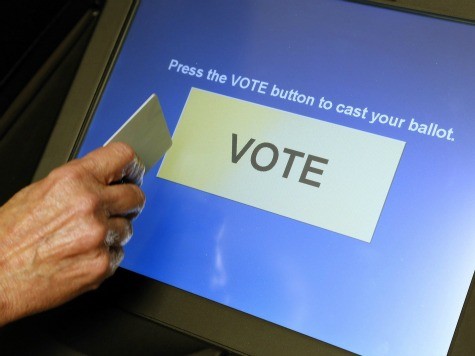
Democrats and Republicans are racking up supermajorities in blue and red states, leading to a country in which the opposition party is rendered useless.
According to the Associated Press, “half of state legislatures now have veto-proof majorities, up from 13 only four years ago” and “all but three states — Iowa, Kentucky and New Hampshire — have one-party control of their legislatures, the highest mark since 1928.”
In 2012 Republicans captured total control in North Carolina, Tennessee, Missouri, Indiana, Oklahoma, Georgia. Democrats gained a supermajority in California and Illinois and “built upon their dominance in places such as Rhode Island and Massachusetts.”
The Associated Press notes, “supermajorities can allow lawmakers to override governors’ vetoes, change tax rates, put constitutional amendments on the ballot, rewrite legislative rules and establish a quorum for business — all without any participation by the opposing party.”
In California, a Democratic supermajority can now pass tax increases, which requires a 2/3 majority of both state houses because of famed Proposition 13.
California Republican Assemblyman Jim Nielsen said an “unprecedented spending and taxing binge” will occur and California Senate President Pro-Tem Darrell Steinberg has “outlined an agenda that includes changing the tax code and ballot initiative process.” Steinberg may also ask voters to legalize gay marriage and has vowed Democrats will exercise “this new power with strength” along with humility” and “reason.”
In red states like Indiana, Republicans may now be able to pass right-to-work laws. In Oklahoma, Republicans may finally be able to reduce the state’s income tax rates. In North Carolina, Republicans may push for income tax and education reform in addition to photo identification voting laws that North Carolina’s previous Governor, Democrat Bev Perdue, vetoed.
In Missouri, Gov. Jay Nixon, a Democrat, has vetoed tax cuts and education reform bills that Republicans had sent to his desk. Now, the Republican supermajority can overrule those vetoes.
Sometimes, supermajorities can produce infighting among various factions within the Republican party. This happened in Kansas, where moderates and conservatives were divided in the statehouse even after Republicans gained a supermajority during the 2010 elections. In 2012, conservatives purified the Republican party, getting rid of moderates at the ballot box en route to gaining a hold of “27 out of 40 Kansas Senate seats and as many as 75 of 125 House seats.”
The emergence of these Republican and Democratic supermajorities paints a picture of a country that is divided and polarized. It may also make states purer laboratories of democracy, and allow Americans to see “red” and “blue” models of governance competing side-by-side and determine which system delivers the best results.

COMMENTS
Please let us know if you're having issues with commenting.